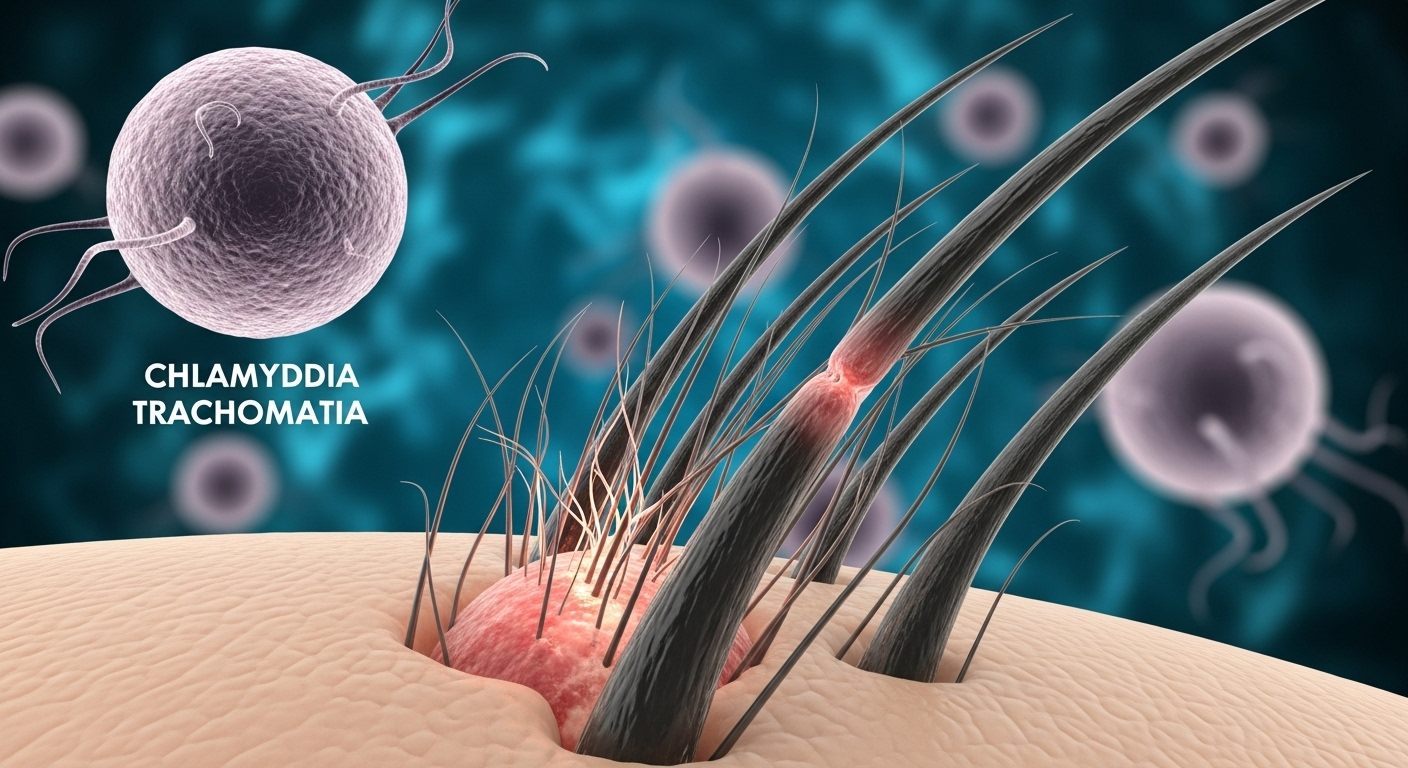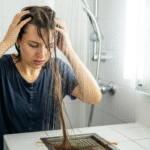Hair loss can be alarming, especially when it seems to occur suddenly or without a clear cause. If you're wondering, does chlamydia cause hair loss, you're not alone. While chlamydia is a common STI, its relationship with hair loss is not well understood. In this article, we'll explore what science says, examine possible indirect links, …
Hair loss can be alarming, especially when it seems to occur suddenly or without a clear cause. If you’re wondering, does chlamydia cause hair loss, you’re not alone. While chlamydia is a common STI, its relationship with hair loss is not well understood.
In this article, we’ll explore what science says, examine possible indirect links, and offer expert-backed advice to help you better understand your symptoms and options. Our goal is to provide clarity, accuracy, and peace of mind.
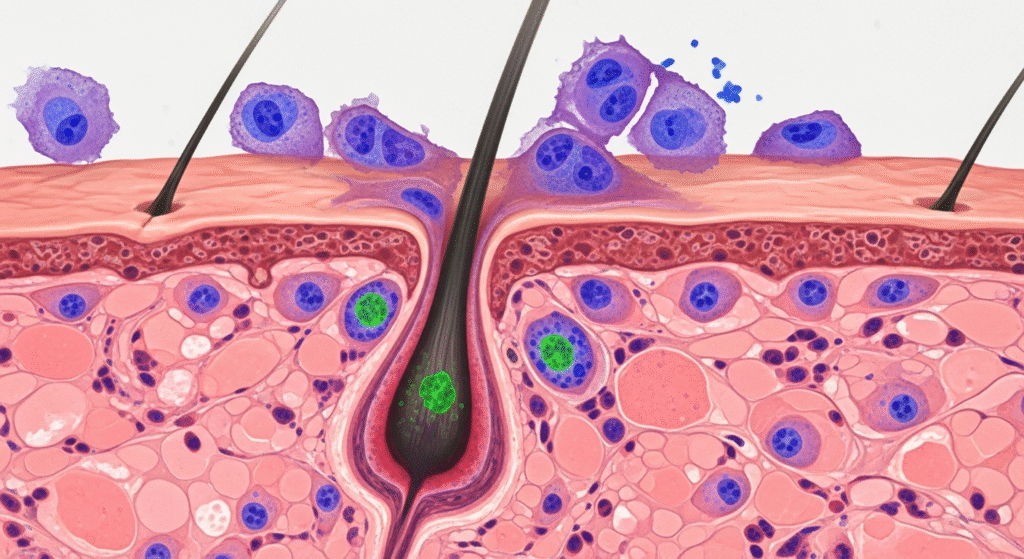
Understanding Chlamydia: A Quick Overview
What is Chlamydia?
Chlamydia is a sexually transmitted infection caused by the bacterium Chlamydia trachomatis. It often spreads through vaginal, anal, or oral sex. Many people don’t experience symptoms, which can make it difficult to detect and treat early.
Common Symptoms in Men and Women
- Painful urination
- Abnormal genital discharge
- Lower abdominal pain
- Testicular pain (in men)
- Bleeding between periods (in women)
How Chlamydia Affects the Body
If untreated, chlamydia can cause serious complications such as pelvic inflammatory disease (PID), infertility, and long-term pelvic pain. It also weakens the immune system, making the body more vulnerable to secondary issues.
Can Chlamydia Cause Hair Loss?
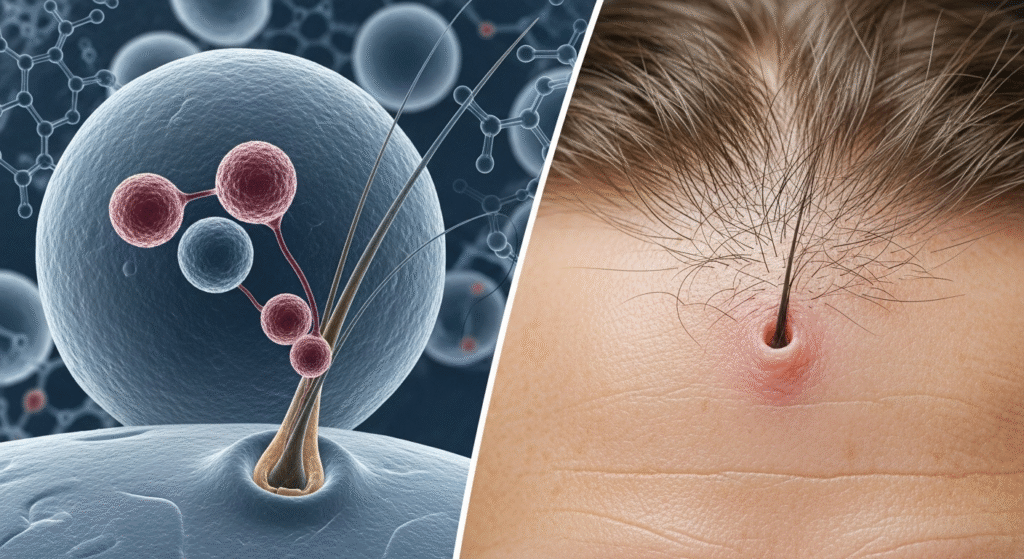
What Science Says: Is There a Direct Link?
Currently, no strong clinical evidence links chlamydia directly to hair loss. Unlike syphilis or HIV, chlamydia doesn’t typically cause alopecia. However, the effects of the infection and its complications may indirectly contribute to hair thinning or shedding.
Immune Response and Hair Loss: A Possible Connection?
Chlamydia can trigger systemic inflammation and an immune response. In rare cases, this stress on the immune system may lead to telogen effluvium—a temporary condition where hair prematurely enters the shedding phase.
Stress and Secondary Infections After Chlamydia
The stress of having an STI diagnosis, along with complications like PID or co-infections, may exacerbate hair loss. Mental health issues and physical stress are both known contributors to shedding.
Case Reports or Anecdotal Evidence?
Some patients have reported experiencing hair thinning after a chlamydia diagnosis, but these are isolated cases without confirmed causation. [Medical Reviewer Note Needed Here]
Other STIs and Hair Loss: Making the Comparison
Syphilis and Telogen Effluvium
Syphilis is known to cause “moth-eaten” hair loss in its secondary stage. This is one of the few STIs with a direct and observable effect on hair.
HIV and Hair Shedding
HIV weakens the immune system and is associated with both telogen effluvium and medication-induced alopecia.
Medication-Induced Hair Loss
Some STIs, including chlamydia, may require antibiotics that could disrupt gut flora or contribute to temporary nutrient absorption issues, both of which can affect hair health.
Causes of Hair Loss Unrelated to STIs
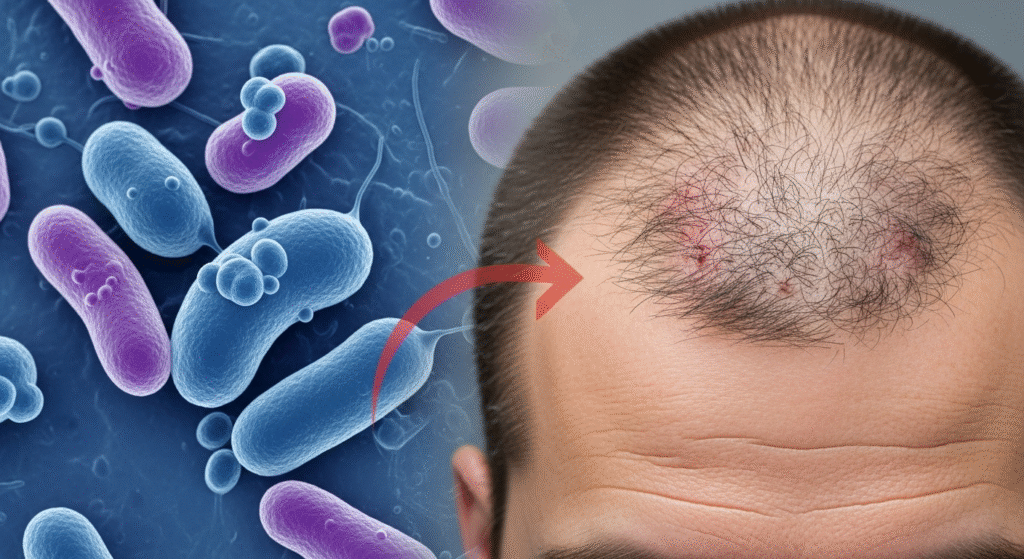
Telogen Effluvium (Stress-Related Hair Loss)
Triggered by emotional or physical stress, this condition leads to diffuse hair shedding and usually resolves within 6 months.
Alopecia Areata (Autoimmune)
This is an immune-mediated disorder where the body attacks hair follicles, resulting in patchy bald spots.
Nutritional Deficiencies and Hormonal Imbalances
Lack of iron, Vitamin D, or biotin, along with thyroid issues, can significantly affect hair growth and strength.
Does Chlamydia Cause Hair Loss: Diagnosis and Medical Evaluation
When to See a Doctor
See a doctor if you notice:
- Unexplained hair loss
- Genital discomfort
- Abnormal discharge
- A recent history of unprotected sex
Tests for Chlamydia and Other STIs
- NAATs (Nucleic Acid Amplification Tests)
- Urine sample or swab test
- Blood tests for other infections
Dermatologist vs. Sexual Health Specialist
A dermatologist can assess scalp health and hair loss causes, while a sexual health specialist can evaluate and treat STIs. Joint consultation may offer the best approach.
Treatment and Recovery
Treating Chlamydia Promptly
Chlamydia is easily treated with antibiotics like azithromycin or doxycycline. Early treatment prevents complications and reduces systemic stress.
Hair Loss Recovery Timeline
If hair loss is related to telogen effluvium, regrowth typically begins within 3–6 months after the stressor is removed.
Addressing Underlying Causes
- Ensure proper nutrition
- Manage stress through therapy or relaxation
- Follow up with both sexual health and dermatological care
FAQs
Can untreated chlamydia lead to permanent hair loss?
Unlikely. Most hair loss associated with chlamydia is temporary and stress-induced.
How long does it take to recover from chlamydia-related symptoms?
With prompt treatment, most symptoms resolve within 1–2 weeks. Hair shedding may take a few months to stabilize.
What should I do if I suspect chlamydia and hair loss?
Consult both a dermatologist and a sexual health specialist. Early testing and diagnosis can help treat both conditions more effectively.
Can hair regrow after treating chlamydia?
Yes, if hair loss was due to stress or immune disruption, regrowth is very likely with appropriate care.
Ready To Take Your Next Step
Hair loss is a complex issue with many potential causes. While chlamydia doesn’t directly cause hair loss, its impact on overall health and stress levels might contribute in rare cases.
The good news? Both conditions are treatable. Book a consultation with Dr. Uzma Irfan, an ISHRS-certified surgeon, accurate diagnosis and proper care can help restore not only your hair but also your peace of mind.

